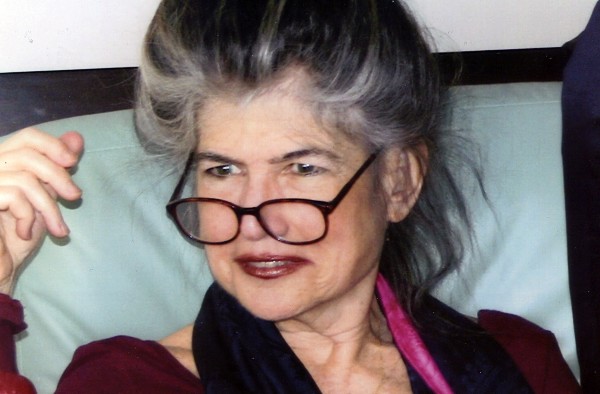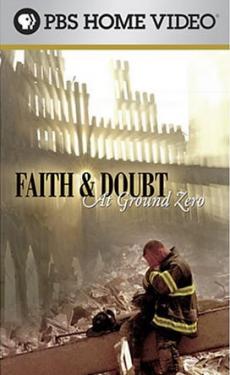Film Interview: Helen Whitney — Film as Spiritual Autobiography
Award-winning filmmaker Helen Whitney: “My films form a kind of spiritual autobiography. I’m always searching for subjects that allow me to ask the big questions: Why are we here? Why must we die? Is this all there is?”
“Spiritual Landscapes: A Life in Film.” The William Belden Noble Lectures present Helen Whitney at The Memorial Church, One Harvard Yard, Cambridge, MA., February 27, 28, and 29, 7 p.m. No tickets required; the Noble Lectures are free and open to the public.
By Peter-Adrian Cohen
Award-winning producer, director, and writer of documentaries Helen Whitney, whose features have aired on PBS, HBO, and ABC, tackles issues of ultimate concern in this lecture series, exploring her interest in religious experiences, especially the spiritual lives of those on the margins of society.
Peter-Adrian Cohen sent Whitney some questions about her approach to the talks, which touch on how spirituality has enriched her films (Faith and Doubt at Ground Zero, The Mormons, Forgiveness: A Time to Love and a Time to Hate) and her life.
Arts Fuse: The title of your Noble lectures -—“Spiritual Landscapes” —- suggests a life calm and reflective. Is that an apt description?
Helen Whitney: Oh my God no! If anything, this journey that I have been on has been filled with drama and tumult. It has involved physical violence —- as during the making of the film about gangs, Youth Terror; The view from Behind the Gun; there was a libel suit initiated against my ABC News film about the McCarthy Era. (We went to trial and won.) There were fierce struggles in the editing room over the making of The Mormons. But yes, there have also been rich opportunities for reflection—in the film about the Trappist monastery, or being in Poland with the Pope, or again filming in a hospice, where people struggle to forgive before dying. And on and on.
It’s an odd all consuming life -— and I suspect it’s fairly typical. Six and sometimes seven days a week, and each day long and full. Along with the days on the road, the lousy motels, the missed holidays, being snowbound in airports—and yet my life in film has been so much fun and incredibly challenging. It has allowed me to enter worlds rarely seen and to ask the most searching, intimate questions of virtual strangers. It has allowed me to meet extraordinary people and have my life enlarged by these encounters; and sometimes these strangers have become close friends.
It has inspired me to develop my skills in an art form that requires everything: music, imagery, drama, poetry. Film is a promiscuous art form; it’s a seething stew. At its best, it packs an emotional wallop unlike any of the other art forms. Through film I can whisper, cry, laugh, even roar about the ideas and obsessions that inform my life.
AF: Throughout your long filmmaking career, you have had the wisdom, or folly, or both to explore large, universal themes.
Whitney: Writing these Noble lectures, choosing the film excerpts that will be shown from the last 49 years of filmmaking, provoked not only a flood of memories but immense gratitude. To all the mentors, all the strangers along the way who enabled me to have this life. To be able to chase down the big story that might radically change my own life and possibly the lives of the viewers. To explore these varied spiritual landscapes; to find ”the underglimmer” as the pilgrim poet Basho described it, a spark that is all too often obscured by our being stuck in the everydayness of our lives.

Helen Whitney —- perhaps the most continuous thread woven through all her work is that of religious inquiry.
As I started to write the lectures, I was startled by the range of my work: monks, gang kids, McCarthy Era victims, Richard Avedon, Pope John Paul 11, survivors of 9/11, homosexuals, presidential candidates and the mentally ill, South Africa’s Truth and Reconciliation Commission, the Rwandan gacaca courts struggling to make people forgive each other. And this is just a small sampling.
Yes, my subjects are widely varied—sometimes puzzling even to myself. The Noble lectures offered me a unique opportunity to discover the “undersong,” the themes and patterns that are so easy to miss when you are caught up living them. And, of course, there are threads uniting all of them; they reflect my fascination with peoples’ lives, especially the lives of outsiders: people who are provoked whether through grief, temperament, or circumstance to live on the edge of society; the men and women who challenge the habitual, the unexamined, the accepted; people who live the here and now, rather than simply pass through it.
But perhaps the most continuous thread woven through all my work is that of religious inquiry. Together my films form a kind of spiritual autobiography that reflect my passionate interest in religious experience. I’m always searching for subjects that allow me to ask the big existential questions: Why are we here? Why must we die? Is this all there is? What is of ultimate value?
Tagged: documentary, harvard-university, Helen Whitney, Noble Lectures, religion


